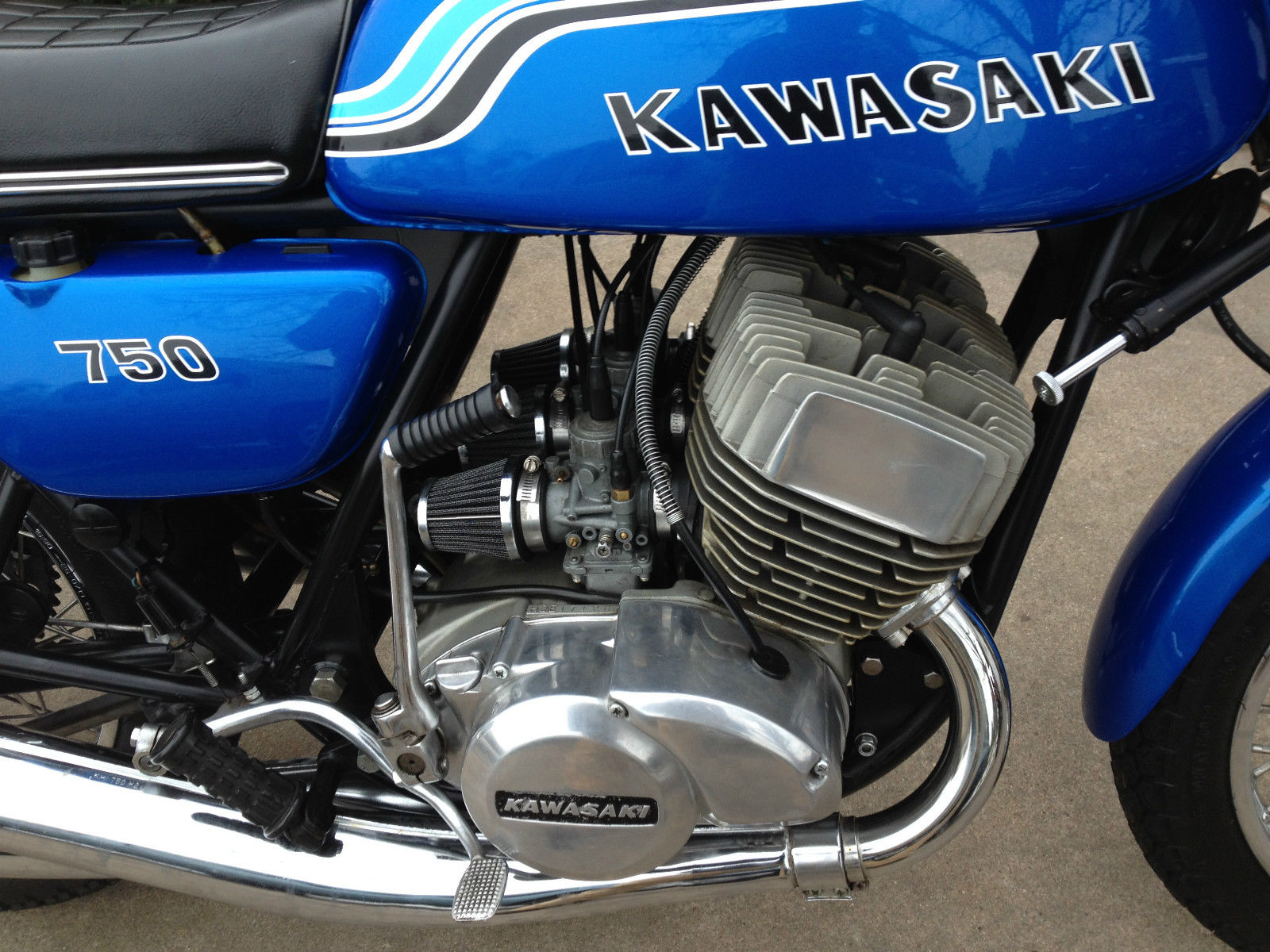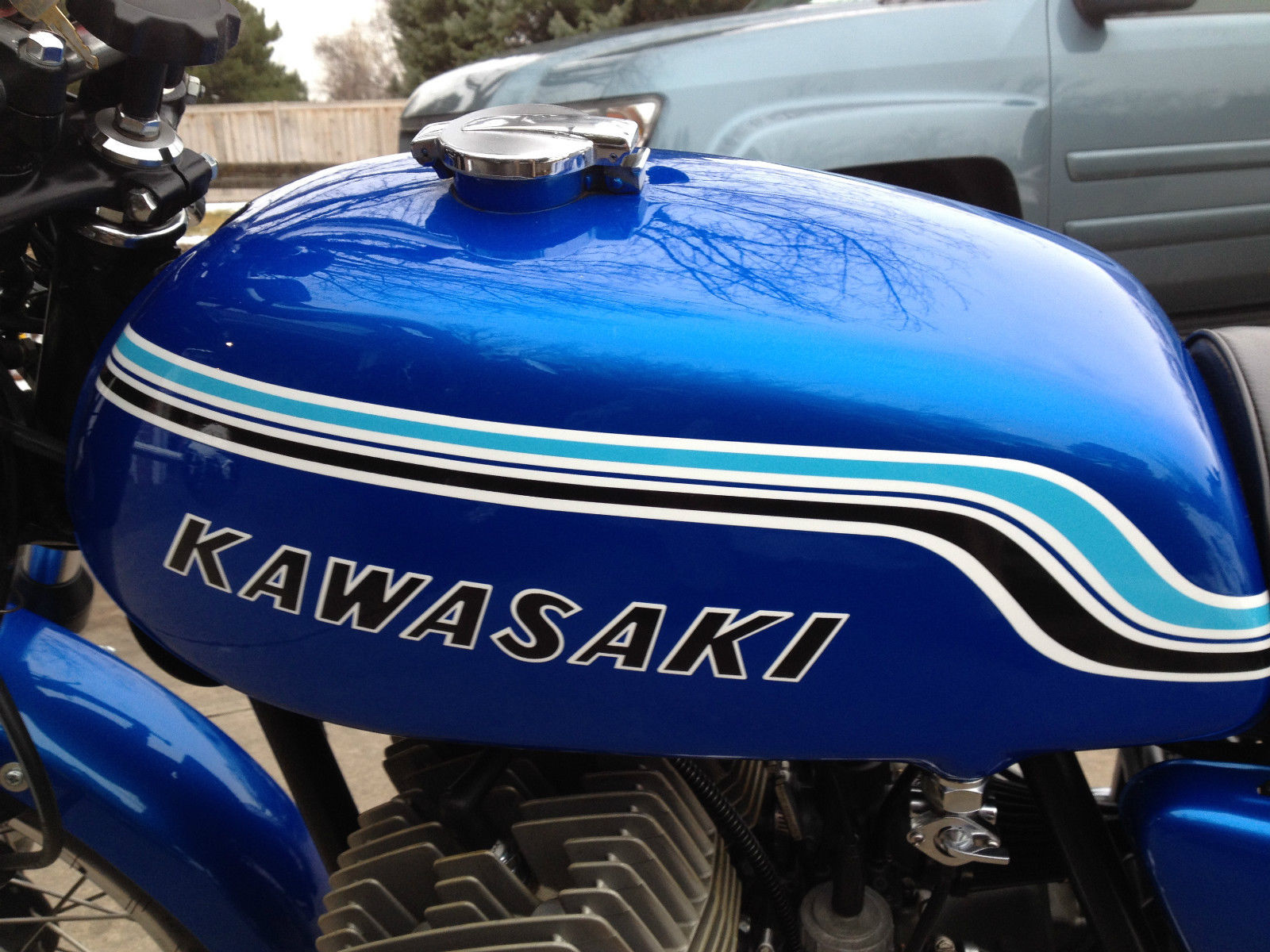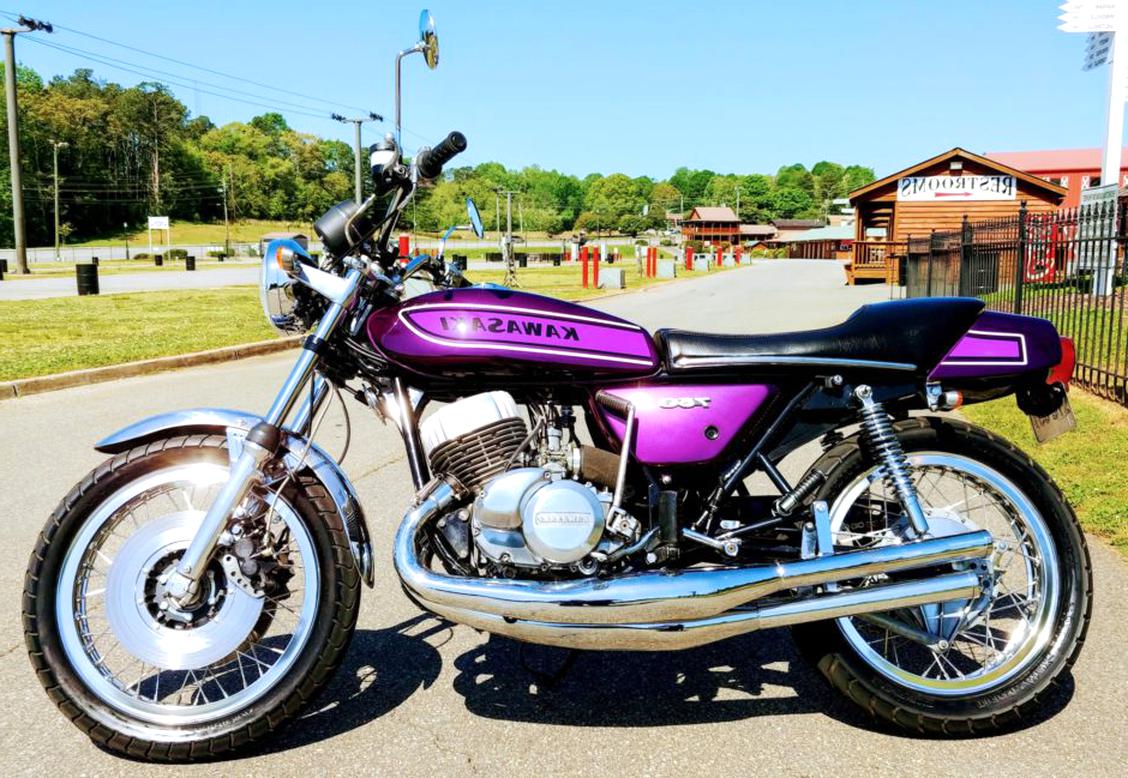Kawasaki H2750 For Sale – It’s a small but significant way to make a positive impact on the planet, especially when one considers the volume of waste generated by fast fashion, electronic waste, and disposable goods. Thrift stores and consignment shops often work with charitable organizations or local non-profits, using the proceeds from sales to support various causes. Quality goods transcend trends and fleeting fads. For sellers, the market for second-hand goods offers an opportunity to declutter their homes and make some extra money. For many, owning a quality product means owning a piece of history, a connection to something larger than themselves. This practice is an essential aspect of sustainability, as it helps conserve resources and reduces the amount of waste sent to landfills. In a world dominated by fast fashion, disposable electronics, and mass-produced items, many people are beginning to question the value of constantly purchasing new products. Historically, many products were made by local craftsmen, and there was a direct relationship between the creator and the consumer. The result is a society that increasingly prioritizes consumption over connection, profit over meaning, and exchange over understanding. This shift from a linear economy, where products are made, used, and disposed of, to a circular one, where products are continually reused and repurposed, is a step towards a more sustainable and environmentally friendly world. These platforms allow buyers to browse listings, access detailed business profiles, and initiate contact with sellers, all from the comfort of their own home. But in the end, whether it’s an item or an individual, the process of being “for sale” is a negotiation of worth, a moment of exchange. When a business is put up for sale, it is typically the result of a variety of reasons, each unique to the situation at hand. It implies that there’s nothing off-limits, nothing beyond the reach of commerce. The concept of quality, however, is not a one-size-fits-all. This subjective nature of value is what makes the “for sale” market so dynamic. The business-for-sale market continues to evolve, influenced by economic trends, technological advancements, and shifts in consumer behavior, but one thing remains clear: buying and selling businesses will always be a fundamental part of the global economy. As more people embrace the idea that everything has value, second-hand goods will continue to be a central part of the way
Quality goods for sale have always held a special place in markets around the world, captivating consumers with their promise of durability, performance, and timeless appeal. These goods, ranging from clothing to furniture, electronics to books, offer people the chance to find items they need or want at a fraction of the cost of new products. The act of selling can be both a release and a renewal, a letting go that paves the way for something new and unknown.

1972 Kawasaki h2 750
Send commentsfind storeswide variety of coupons

1972 Kawasaki H2 750 Triple for Sale Classic Sport Bikes For Sale
Send commentsfind storeswide variety of coupons

The Namesake 1972 Kawasaki H2 750 Mach IV Rare SportBikesForSale
Send commentsfind storeswide variety of coupons

1972 Kawasaki H2 750 Triple for Sale Classic Sport Bikes For Sale
Send commentsfind storeswide variety of coupons

1974 Kawasaki H2 750 Mach IV For Sale
Send commentsfind storeswide variety of coupons

1972 Kawasaki H2 750 for Sale at Auction Mecum Auctions
Send commentsfind storeswide variety of coupons

1974 Kawasaki H2 750 for sale on 2040motos
Send commentsfind storeswide variety of coupons

1972 H2 750 Kawasaki For Sale / Restored Kawasaki H2 750 1972
Send commentsfind storeswide variety of coupons

Kawasaki H2 750 Triple for sale in UK 59 used Kawasaki H2 750 Triples
Send commentsfind storeswide variety of coupons

No Reserve 1973 Kawasaki H2 750 for sale on BaT Auctions sold for
Send commentsfind storeswide variety of coupons
Many high-quality products come with a rich history, whether it’s the legacy of a renowned brand or the personal touch of a local maker. The idea of buying things that were once owned by someone else is no longer considered taboo or lesser; rather, it has become a lifestyle choice for those who want to make smarter, more ethical purchasing decisions. Take, for example, a high-quality piece of furniture — a well-crafted sofa or dining table can last for decades if maintained properly. This shift from a linear economy, where products are made, used, and disposed of, to a circular one, where products are continually reused and repurposed, is a step towards a more sustainable and environmentally friendly world. By purchasing second-hand goods, consumers help keep products circulating in the economy, giving them new life and purpose. But in the end, whether it’s an item or an individual, the process of being “for sale” is a negotiation of worth, a moment of exchange. Online platforms like Etsy, for example, have given artisans a global audience for their high-quality handmade goods. On one hand, there’s the potential for an established client base, proven systems, and a recognizably brand name. The concept of quality, however, is not a one-size-fits-all. Beyond financial savings and environmental impact, second-hand goods also offer a sense of nostalgia and connection to the past. For sellers, online platforms can expand their reach to a global audience of potential buyers, increasing the chances of finding the right match for their business. But what about the intangible things? Can memories be bought? Can feelings, emotions, or connections be traded? In a sense, many people would argue that in today’s world, even the intangible is up for grabs. But is this a reflection of reality? Or is it an illusion we’ve created, an idea we’ve accepted in order to make sense of a world that increasingly revolves around consumption and profit?
At the core of this idea lies the assumption that everything, no matter how unique or rare, can be exchanged. The world of second-hand goods for sale is vast and varied, encompassing everything from clothing, electronics, and furniture, to books, antiques, and collectibles. Many people find that buying second-hand furniture allows them to acquire high-quality pieces that are built to last, often with a level of craftsmanship that is hard to find in mass-produced furniture. In conclusion, second-hand goods for sale represent more than just a financial transaction; they embody a shift toward sustainability, individuality, and social responsibility. They become part of the story of the buyer and the creator, connecting people to a tradition of excellence, heritage, and care. The story behind the item becomes part of its value, adding an emotional dimension to its physical form. There are communities that exist outside the realm of traditional commerce, where sharing, collaboration, and mutual support take precedence over profit. The notion suggests a world where anything and everything, regardless of its intrinsic value, can be bought, sold, or traded.
Whether it’s a handmade leather bag, a vintage watch, or a luxury car, the term “quality” brings with it an expectation — an assurance that the item in question has been crafted with care, attention to detail, and materials that can stand the test of time. The growing interest in second-hand goods can also be attributed to shifting cultural attitudes toward consumption. When an item is marked as “for sale,” it enters a space where value is defined not only by the object itself but by the context in which it’s placed. Most new items, particularly electronics, are designed with built-in obsolescence. The practice of buying and selling second-hand items has been around for centuries, but in recent years, it has seen a resurgence. Economic downturns, for example, can influence the types of businesses that are put up for sale, as struggling companies may look to exit the market. It’s a small but significant way to make a positive impact on the planet, especially when one considers the volume of waste generated by fast fashion, electronic waste, and disposable goods. These platforms allow users to browse listings, communicate with sellers, and make purchases from the comfort of their own homes. This has made it easier for people to find items that might have otherwise been out of reach, whether it’s a rare collectible, an antique, or a product from another country. One of the major environmental concerns with new products is the waste that they often generate at the end of their life cycle. Historically, many products were made by local craftsmen, and there was a direct relationship between the creator and the consumer. As more people embrace the idea that everything has value, second-hand goods will continue to be a central part of the way
Quality goods for sale have always held a special place in markets around the world, captivating consumers with their promise of durability, performance, and timeless appeal. The notion suggests a world where anything and everything, regardless of its intrinsic value, can be bought, sold, or traded. It is subjective, shaped by cultural norms, individual preferences, and the evolving standards of various industries. Perhaps the most troubling aspect of the idea that everything is for sale is how it can shape the way we view the world and each other. They walk into a space that holds the potential for their own memories to be created, for their own life to unfold. They also often help with legal and financial aspects, ensuring that the transaction is completed smoothly and efficiently. Relationships can become transactional, where each party enters into an agreement based on what they stand to gain. Similarly, a quality suit made from fine wool will age gracefully, developing a patina that speaks to its craftsmanship. In some cases, sellers may be willing to offer financing options, where they agree to receive payment over time, which can make the business more attractive to potential buyers.